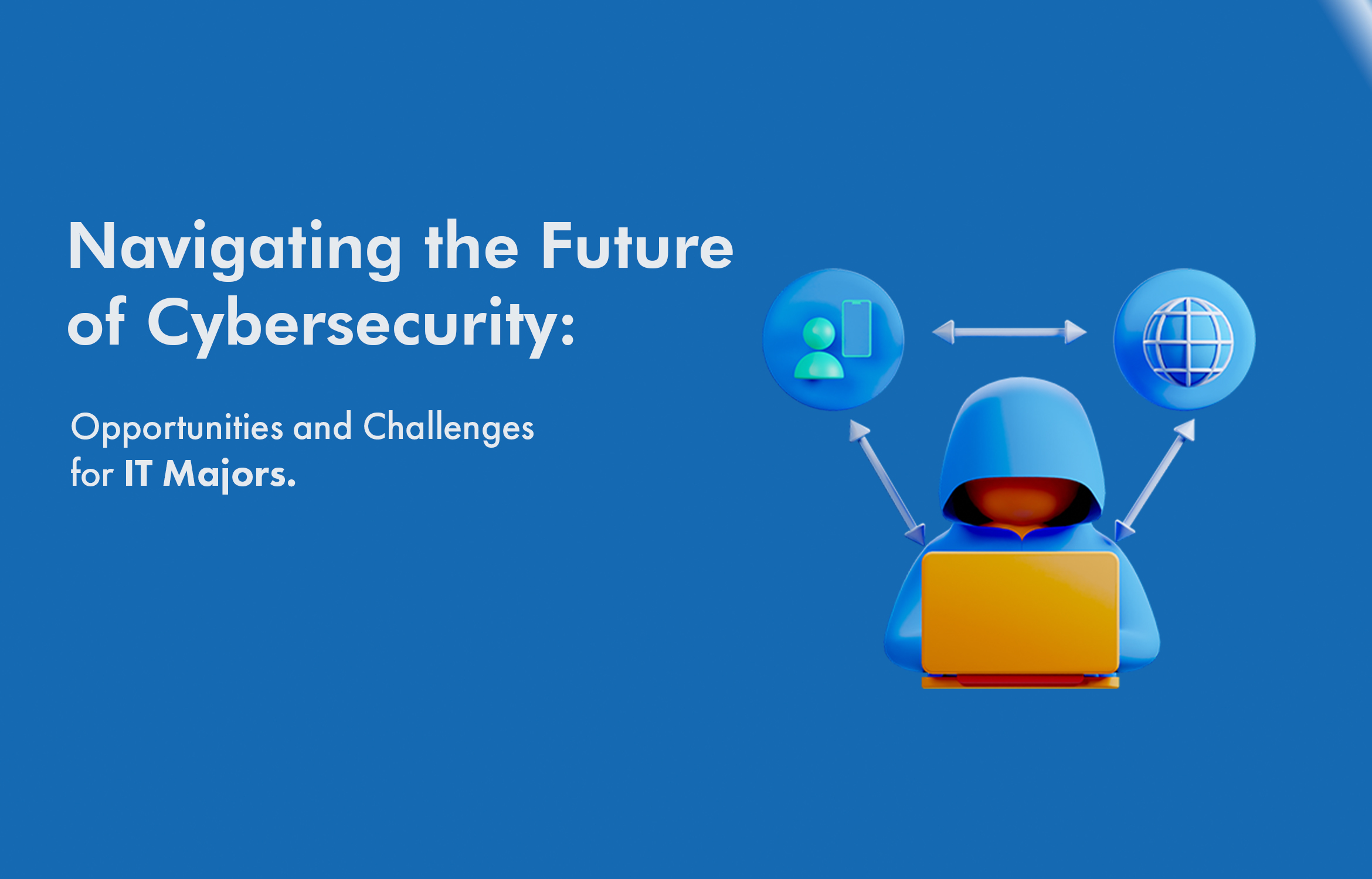As we increasingly rely on technology and the internet for business, communication, and personal use, the importance of cybersecurity has become more apparent than ever. The threat of cybercrime and cyberattacks is on the rise, and the consequences of a security breach can be devastating for individuals and businesses alike. This has led to a growing need for cybersecurity experts and solutions, which has made cybersecurity one of the industries that is growing the fastest right now. IT majors have a unique role to play in figuring out the future of cybersecurity in this situation. As technology keeps changing and threats get more complicated, IT majors must be ready to face the challenges and take advantage of the opportunities in this fast-paced field. In this blog post, we will discuss some opportunities and challenges that IT majors need to consider as they navigate the future of cybersecurity.
Opportunities
Demand for Cybersecurity Experts is on the Rise: As cybercrime and cyberattacks become more common, there is a huge need for cybersecurity experts. IT majors can take advantage of this demand by teaching and training people in cybersecurity.
Growing Cybersecurity Industry
With the increasing threat of cyberattacks, the cybersecurity industry is growing rapidly. IT majors can benefit from this growth by investing in cybersecurity startups or developing their own cybersecurity products.
Cloud Security
Cloud computing is becoming increasingly popular, but it also poses a significant security risk. IT majors can take advantage of this opportunity by offering cloud security solutions.
AI and Machine Learning
AI and machine learning can be used to identify potential cyberthreats and prevent cyberattacks. IT majors can take advantage of this technology by developing their own AI-powered cybersecurity solutions.
Government Contracts
Governments around the world are investing heavily in cybersecurity. IT majors can benefit from this investment by bidding for government contracts.
Cybersecurity Consulting
Businesses are looking for cybersecurity experts to help them protect their networks and data. IT majors can offer cybersecurity consulting services to businesses.
Cybersecurity Education
There is a growing need for cybersecurity education in schools and universities. IT majors can develop cybersecurity curricula and offer training programmes for educators.
Cybersecurity Research
Cybersecurity is a field that is always changing, so there is always a need for research and development. IT majors can invest in cybersecurity research and development to stay ahead of the curve.
Cybersecurity Partnerships
IT majors can work with cybersecurity startups, government agencies, and other groups to come up with new ways to keep computers safe.
Challenges
Shortage of Cybersecurity Professionals: While the demand for cybersecurity professionals is high, there is a shortage of qualified professionals in the field. IT majors need to put money into education and training programmes for cybersecurity to make up for this shortage.
Rapidly Evolving Threat Landscape
Cyber threats are always changing, so IT majors need to stay on top of what’s going on to keep their networks and data safe.
Lack of Standardization
There aren’t enough standards in the cybersecurity industry, which makes it hard for IT majors to come up with and implement good cybersecurity solutions.
Complexity of Security Systems
Cybersecurity systems can be hard to use and manage, so IT majors need to make sure their systems are simple.
Budget Constraints
Cybersecurity can be expensive, and IT majors need to balance the cost of cybersecurity with their budget constraints.
User Awareness
Despite the best cybersecurity systems, human error remains a significant risk factor. IT majors need to invest in user awareness programs to ensure that their employees are aware of the risks and know how to protect themselves.
Global Cybersecurity Regulations
Different countries have different rules about cybersecurity, and IT majors need to figure out how to follow these rules.
Integration with Legacy Systems
Many businesses have legacy systems that are difficult to integrate with modern cybersecurity systems. IT majors need to find ways to integrate these systems without compromising security.
Thus, navigating the future of cybersecurity presents both opportunities and challenges for IT majors. The increasing demand for cybersecurity professionals and the growing cybersecurity industry offer a wealth of opportunities for IT majors to expand their businesses and develop innovative solutions. However, the rapidly evolving threat landscape, lack of standardization, and complexity of security systems pose significant challenges that must be overcome.
If you need any kind of information, PCPS is always there for you!


Comments are closed